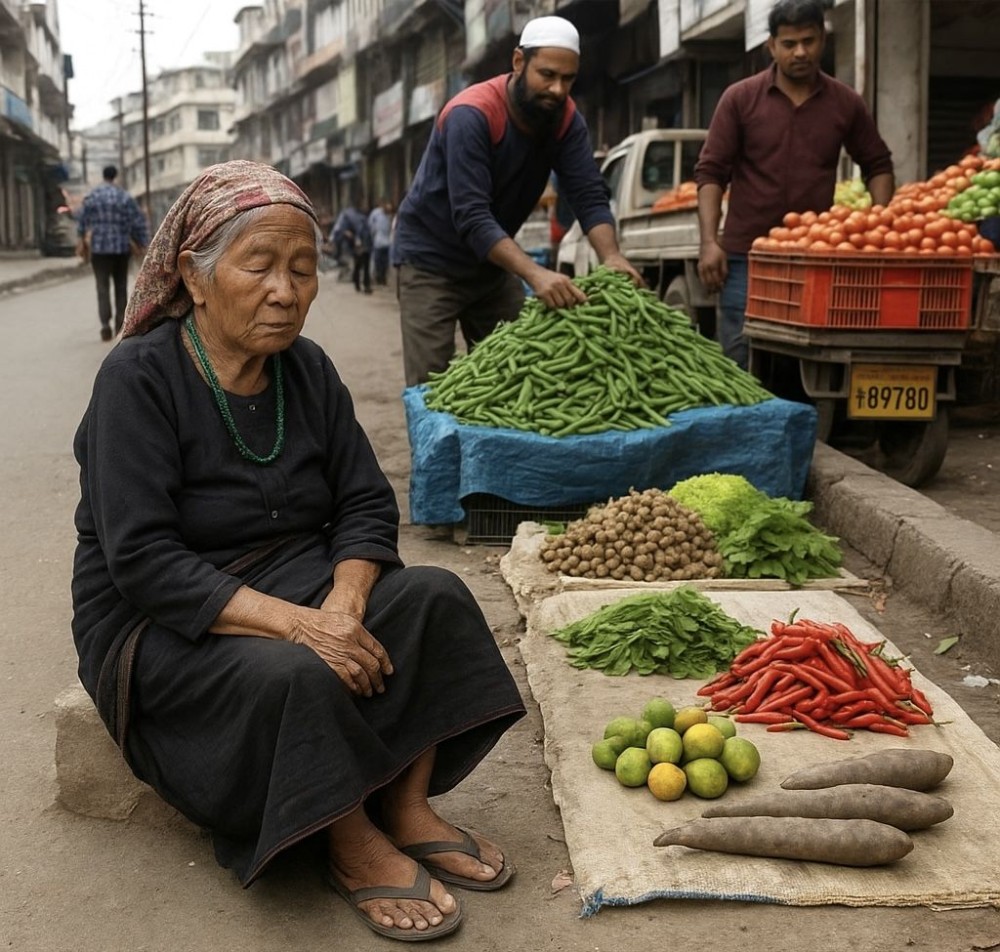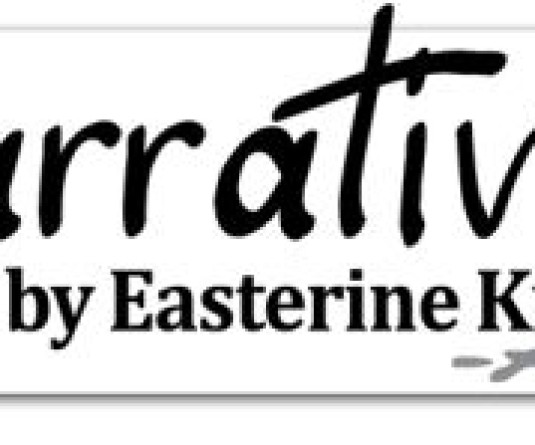
Yanpvuo Kikon
Every morning in our towns, we see Naga mothers sitting smiling laughing on the pavements, selling vegetables, chillies, fruits, and other local produce. They’re not just earning a living but feeding us fresh, organic nutritious locally grown food!
But quickly, that picture is changing where non-local vendors are moving in, taking over prime spots and pushing our mothers further back — sometimes into unsafe corners or less visible areas. This isn’t just about space; it’s about survival. When local mothers lose premium spot, they lose customers. And when they lose customers, they lose income — income that feeds families, educates children, and keeps our local economy alive.
Example 1: Chandmari PWD Colony Kohima
Long back, along the Chandmari PWD Colony, Rengma mothers used to sit with baskets of fresh, nutritious local vegetables and goods. It was simple, peaceful, and community-driven. Then came the non-local traders — bringing in huge loads in truckloads and Tata mobiles. Soon, chaos replaced calm where traffic jam & chaos increased, and our mothers sidelined. These women who sold just enough items to pay school fees and put food on the table could no longer compete with the scale and aggression of the newcomers. Eventually, the encroachment and traffic mismanagement became so bad that the entire market was shut down! Who lose at the end? We Nagas.
Example 2: BOC Lake Market Area
The same sad story is repeating itself. Once upon a time, the entire BOC Lake Market road was lined with Naga mothers — selling local snails, guavas, seasonal greens, and fresh produce from their farms. Today, they’ve been pushed to the fringes, shoved around, and even spoken to harshly by non-local “miyas” who have taken over and dominated the market space. Our mothers are left selling barely Rs 500 worth of local produce in a day, while the newcomers control the prime spots and big sales.
This will eventually impact not just our local economy but also our entire socio demographic future as indigenous Nagas.
Economic Impact – Money spent with our mothers stays in our community. Money spent elsewhere often leaves it.
Cultural Identity – Our markets are more than places to buy food; they are part of our cultural heritage.
Respect for Elders – These women have braved rain, heat, and cold for decades. They deserve protection, not eviction.
We are not against fair competition. But fairness means creating policies that protect our own first, ensuring that the very people who built these markets are not pushed out of them.
We must
• Prioritize stalls for local vendors, especially our mothers especially in prime market locations & not in far flung sub urban areas
• Set clear rules and enforce them.
• Recognize that preserving our market culture is preserving who we are.
Once our mothers are gone from the pavements, a part of our identity goes with them. Let’s not wait until it’s too late.





